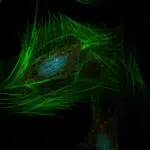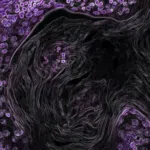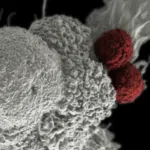Last year Moderna’s former head of infectious disease described vaccine lipid nanoparticle (LNP) delivery technology “unsung hero of the whole thing.” The whole thing being the mRNA COVID-19 vaccine administered to hundreds of millions around the globe, through both Pfizer and Moderna. Proper delivery that protected the fragile messenger RNA molecular was critical in making the vaccine a reality.
We see this as a perfect illustration of the importance of delivery technology in bringing promising therapeutic innovation to life. It is why delivery is one of the six core biologic modalities we support with our portfolio of platforms and services. At Alloy, we are committed to developing, licensing, and acquiring basic drug delivery, formulation and half-life extension technology with the goal of sharing it with the global scientific community. We have initiated several internal R&D projects within delivery at Alloy, and are also a member of the recently announced Industry Affiliate Program of MIT’s Marble Center for Cancer Nanomedicine, which facilitates scientific collaborations between academia and industry to enable breakthrough innovations in nanomedicine-adjacent fields such as drug delivery. We are also actively seeking new collaborations and licensing opportunities with academics and for-profit companies.
Our rich history in protein engineering and development has made delivery a natural extension of our core businesses. Our team has decades of experience dealing with the challenges of half-life extension, crossing the blood-brain barrier for neurology applications and general stability and formulation issues. Conjugation technology can be broadly applied in many different circumstances, such as with antibody-drug conjugates (ADCs), oligonucleotide conjugates or peptide conjugates. Generally these methods are only validated ultimately in a clinical setting, at which point the patented technology is not broadly available to other drug developers to utilize in their own pipelines. This can lead to the largest pharma companies failing to have access to basic, enabling technologies until a lengthy, 20-year patent life has expired. At Alloy, we envision a more pre-competitive consortium approach to developing basic drug delivery technologies so that teams can rapidly develop their own drugs quickly after underlying methods and technologies have been validated.
We recognize that a favorable licensing model is a key ingredient to making these delivery innovations a reality in therapeutics as well, and therefore all delivery technology released through Alloy will be available as part of our Innovation Subscription model and in some cases also available through our platforms and services offerings. We want scientists to be able to access all technology with the appropriate level of exclusivity and for innovators to receive fair compensation for their inventions and drug programs. We believe there is plenty of opportunity for discovery teams everywhere to have access to foundational, pre-competitive delivery technology and still have commercial success. We do not want unnecessary legal barriers to prevent scientific progress and getting the best treatments to patients as rapidly as possible.
We look forward to announcing additional partnerships and impending commercial work in delivery. In the meantime, if you have a promising delivery technology to share with the global scientific community, please reach out to our business development team to discuss in-licensing opportunities.






